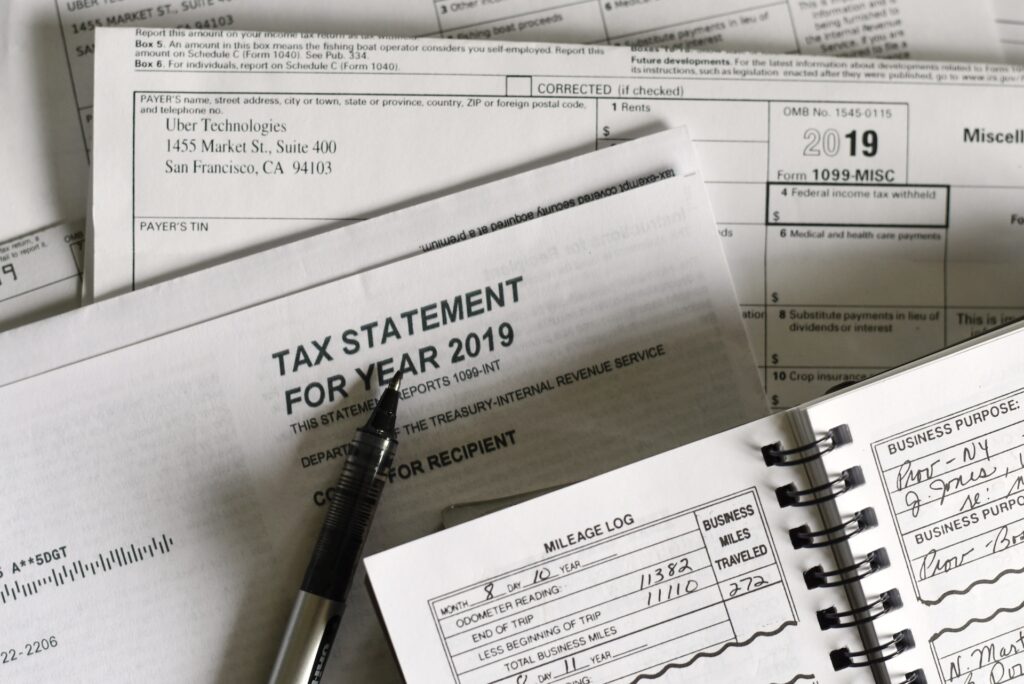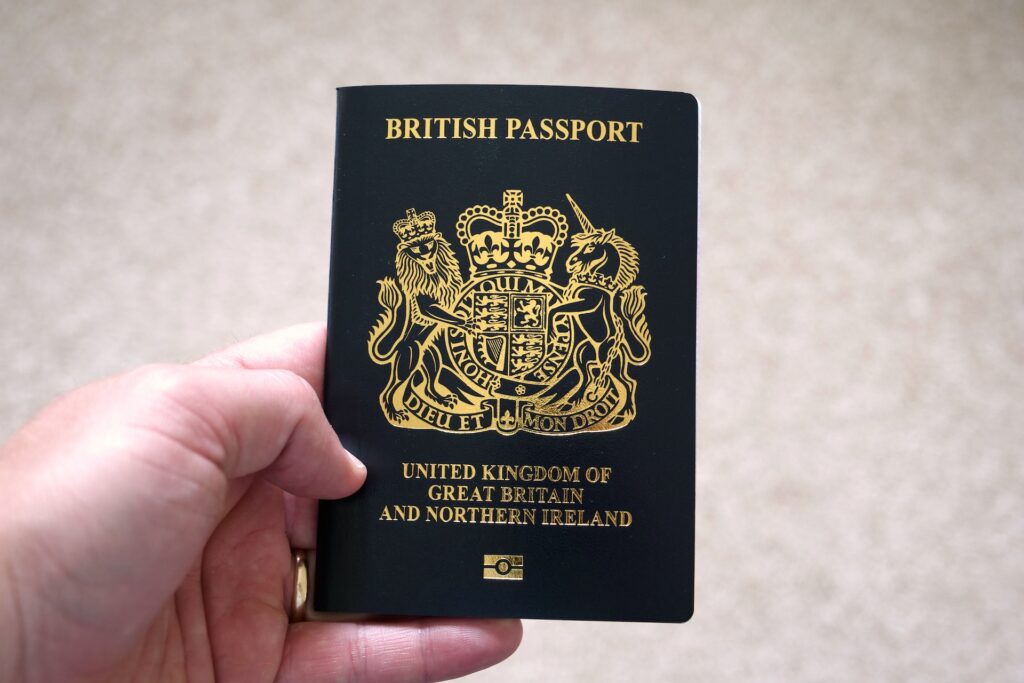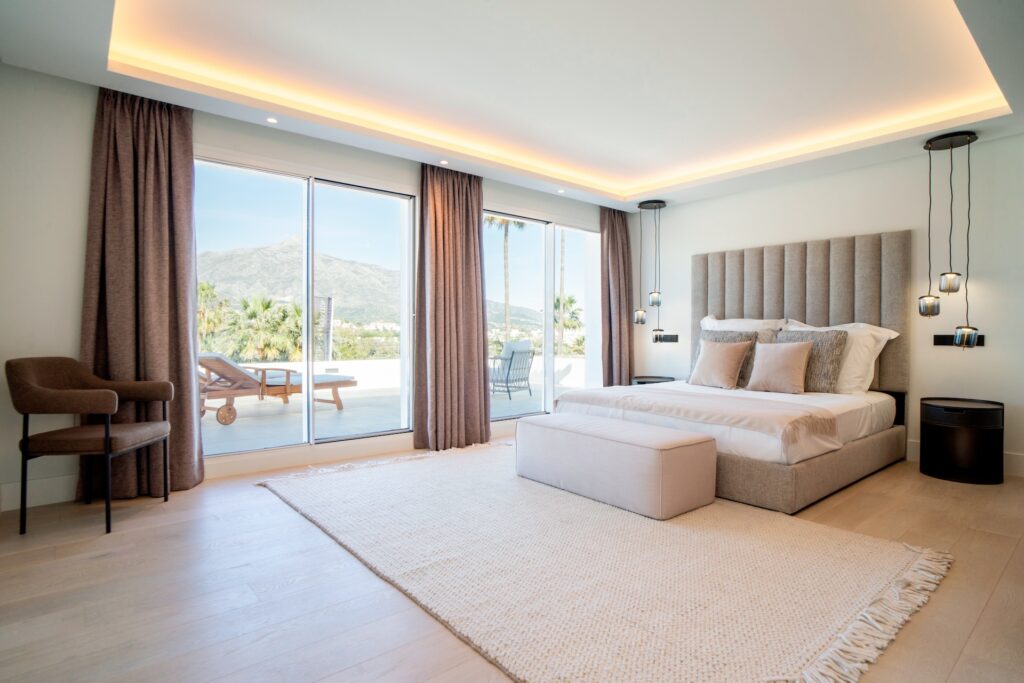
Have You questions, how to buy property in Marbella, Spain, as foreigner? You live in Europe? Are You from UK? Or maybe You’re an american? Here we have our guide, full of informations about buying property in Spain. For example, Marbella is a dream for many, whether it’s for investment, a vacation home or permanent residence. Marbella, located on the Costa del Sol, is known for its luxurious lifestyle, beautiful beaches, and vibrant culture. However, navigating the process as a foreigner can be daunting due to legal and procedural nuances. In this article, we’ll explore the steps to buy property in Spain, Marbella, the legal requirements, and essential tips for a successful purchase.
In this article, you will learn how to buy a property in Spain, with a specific focus on Marbella. We’ll cover everything from legal requirements to investment tips, ensuring you have all the information you need to make an informed decision.
What to Do Before Purchasing a Property in Marbella?
Travel to Marbella and Organize Your Property Viewings
Planning your trip to Marbella is the first crucial step in purchasing property. Once you’ve identified potential properties online and consulted with a trusted real estate agent, you’re ready to organize your visit. Proper planning can make your trip both efficient and enjoyable, allowing you to make informed decisions about your potential investment.
- Start with a shortlist
Focus on homes that meet your essential needs, such as size, location, and budget. This will help narrow down your options and save time during your visit. - Choose your agent
Ideally, you should have already selected a reputable real estate firm or agent to work with. They will be your local guide, helping you navigate the property market. A good agent can organize multiple viewings in a single day and provide insights about each property’s strengths and weaknesses. Clearly communicate your likes, dislikes, and must-haves so they can tailor their recommendations to your preferences. - Limit viewings per day
To avoid feeling overwhelmed, try to view no more than five properties in a day. This allows you to give each home your full attention and make clearer comparisons. If you’re on a tight schedule, you may need to view up to ten properties, but pace yourself and take breaks to maintain focus. - Check the neighborhood
The property’s surroundings are just as important as the home itself. Consider factors like proximity to schools, shopping centers, public transport, and recreational areas. Take a drive or walk around the neighborhood to observe its atmosphere and amenities. This step ensures the location aligns with your lifestyle and long-term goals. - Stay flexible: Be prepared for your viewing schedule to change. Online listings don’t always reflect reality, and you might encounter properties that look different in person. Trust your agent to adjust plans as needed and suggest alternative options if necessary.
- Document your impressions
After each viewing, take notes or photos of key features and your overall feelings about the property. This will help you recall details when it’s time to make a decision. Additionally, ask questions about the property’s history, maintenance needs, and nearby developments to gain a deeper understanding.

Ensure Documentation is in Place
Before or during your trip to Marbella, ensure all necessary documentation is prepared to save time and avoid financial or procedural delays. Spain is known for its bureaucracy, so it’s essential to stay organized:
- Apply for an N.I.E Number – A Key Point for Foreigners
The Número de Identidad de Extranjero (NIE) is a mandatory identification number for foreigners conducting financial transactions in Spain. You’ll need this number to buy property, open a bank account, and pay taxes. You can apply for an NIE at a Spanish consulate in your home country or in Spain itself through a local police station. Be prepared to provide supporting documents such as your passport, proof of why you need the NIE, and completed application forms. Processing times can vary, so apply as early as possible. Alternatively, a lawyer can handle the NIE application process on your behalf, ensuring accuracy and saving you time. - Open a Spanish Bank Account – A Key Point for Foreigners
A Spanish bank account is essential for transferring funds and completing the purchase process. Most banks will require your NIE, proof of income, and valid identification such as your passport. Opening an account in advance allows you to handle deposit payments, tax obligations, and utility bill setups with ease. Some banks offer specialized services for non-residents, so it’s worth researching which institutions cater best to foreign clients. If you find the process challenging, a lawyer can assist you in opening an account, ensuring all requirements are met and streamlining the process. - Proof of Funds
Sellers and agents often require documentation proving your financial readiness to proceed with the purchase. This can include bank statements, a letter of financial solvency, or pre-approval documents for a mortgage if applicable. Having these ready demonstrates that you’re a serious buyer, which can be advantageous during negotiations. - Understand Tax Obligations
Property purchases in Spain come with a range of taxes, including Transfer Tax (ITP) for resale properties and VAT (IVA) for new builds. Additionally, there is Stamp Duty (AJD) and annual property taxes to consider. It’s crucial to budget for these costs, which typically add up to 10-13% of the property price. Working with a tax advisor can help you understand your obligations and avoid unexpected expenses. - Prepare for Additional Legal Documentation
Depending on your circumstances, you may also need a power of attorney (if someone else is managing parts of the transaction on your behalf) or translated and notarized versions of your documents. If you’re applying for a mortgage, expect additional paperwork, including proof of income, employment contracts, and tax returns. Additionally, it’s highly recommended to create a Spanish will if you’re buying property in Spain. A will ensures that your property and assets are distributed according to your wishes under Spanish inheritance laws, which can differ significantly from those in your home country. Consulting a legal expert can help you draft a clear and legally compliant will, saving your heirs from potential complications and ensuring your estate is handled efficiently.

Engage a Lawyer
When buying property in Spain, working with a local lawyer who specializes in Spanish property law is highly recommended. A lawyer can handle critical tasks such as verifying property ownership, checking for existing debts or legal issues, and drafting or reviewing contracts. Additionally, our real estate agency can recommend reliable lawyers who have extensive experience in assisting foreign buyers. These professionals ensure the legal process is smooth and transparent, giving you peace of mind throughout your property purchase.
Sign the Arras Agreement
The Arras Agreement is a crucial preliminary contract in the Spanish property purchasing process. Under this agreement, the buyer typically pays a deposit of around 10% of the property price. This deposit secures the property and formally removes it from the market, giving the buyer exclusive rights while the final purchase details are arranged. The agreement also outlines key terms such as deadlines for completing the sale and any conditions that must be met before proceeding. If the buyer decides to withdraw from the purchase without valid reasons, they forfeit the deposit. Conversely, if the seller backs out, they are often required to return double the deposit amount to the buyer as compensation. A qualified lawyer can guide you through the specifics of this contract, ensuring your interests are protected and that all terms are legally sound.
Step-by-Step Guide to Buying Property in Marbella, Spain, in 2025
Step 1: Understand the local property market by:
- Research popular neighborhoods such as Nueva Andalucía, Puerto Banús, and Golden Mile. Each area offers unique advantages, from luxury beachfront villas to family-friendly communities. Nueva Andalucía, known as “Golf Valley,” is perfect for avid golfers and families seeking a peaceful environment. Puerto Banús is a hub of luxury, attracting yacht owners and those looking for vibrant nightlife. The Golden Mile offers a blend of exclusivity and proximity to top-tier amenities, making it ideal for those seeking a luxurious yet accessible lifestyle.
- Dive into market trends by analyzing property price fluctuations over the past years. For example, in 2022, property prices in Marbella rose by an average of 8%, with luxury properties experiencing even higher growth rates. Collaborate with experienced real estate agents who are familiar with these nuances, as their insights can help identify the best investment opportunities tailored to your goals.
Step 2: Budget and Financing
- Define your budget, accounting for additional costs like taxes, notary fees, and legal services. Remember that these costs can add up to 10-15% of the property price. For instance, purchasing a €500,000 property could require an additional €50,000-€75,000 for these expenses.
- Explore financing options. Spanish banks often provide mortgages for foreigners, covering 60-70% of the property’s value. Ensure you meet the bank’s requirements, including proof of income and financial stability. In 2023, average mortgage interest rates in Spain ranged between 2.5% and 4% for non-residents, depending on the bank and loan terms.
Step 3: Property Search
- Use reliable property portals like Idealista or collaborate with our local agency to find available properties. We provide personalized assistance and offer virtual tours, enabling you to conveniently shortlist properties before traveling to Marbella.
- Visit properties in person to evaluate their condition, surroundings, and alignment with your preferences. Pay attention to details like build quality, proximity to essential services, and the overall ambiance of the area. For instance, properties near international schools or medical facilities may appeal more to families.
Step 4: Conduct Due Diligence
- Confirm the property is free of debts and complies with zoning laws. Your lawyer will handle these checks, ensuring there are no surprises during the purchase process. They will review all necessary documentation, including property titles, tax records, and building permits, to verify the legal status of the property. Additionally, your lawyer can help identify any potential liabilities, such as unpaid community fees or pending disputes, ensuring that your investment is secure and risk-free.
- Request a technical inspection to evaluate the property’s structural integrity and identify any potential concerns, such as outdated electrical wiring or signs of dampness, which are particularly common in older buildings. Additionally, review the status of utility connections, including water, electricity, and internet, to ensure they are operational. Verifying these beforehand can help streamline the move-in process. Keep in mind that properties in rural areas may require additional infrastructure upgrades to meet modern requirements.
- Verify community fees and other recurring costs if the property is part of a development. These fees can range from €50 to €1500 monthly, depending on the amenities offered.
Step 5: Finalize the Purchase
- Sign the purchase contract and pay the agreed amount. This contract will clearly outline all terms and conditions of the sale, including the timeline for transferring ownership. The contract will be thoroughly verified by your lawyer and our agency to ensure accuracy and compliance with all legal aspects. All funds are transferred to the law firm’s bank account. If the current property owner has any outstanding debts, they will be automatically settled from these funds before the remaining balance is distributed to the owner. This ensures that, as the new owner, you will not inherit or be responsible for any existing debts associated with the property.
- Register the property under your name at the local land registry. This step officially transfers ownership to you and safeguards your rights by law. Although the registration process can take several weeks, once finalized, you will receive the title deed (escritura). Our agent and your notary will assist you throughout this process to ensure everything is handled efficiently and correctly.
- Ensure that all taxes and fees are paid promptly. Late payments can lead to fines, so it’s important to work closely with your lawyer and tax advisor to effectively manage deadlines and remain compliant.
Property purchase tax in Spain in 2025
This how property purchase tax in Spain looks like.
Taxes
- Transfer Tax (ITP): 7% for resale properties
- VAT (IVA): 10% for new properties
- Stamp Duty (AJD): Approximately 1.5%
Additional Fees
- Notary Fees: 1-2% depending on the property value
- Lawyer Fees: 1-2% of the purchase price
- Land Registry Fees: about €400-€700

Key Tips for Foreign Buyers
- Hire a Bilingual Lawyer: Ensure clear communication and legal compliance throughout the process. A bilingual lawyer will navigate the legal system efficiently, ensuring that you understand every step and protecting your interests.
- Currency Exchange: Specialized services can save money on international fund transfers. For large transactions like property purchases, these services offer better rates and reduced fees compared to standard bank transfers, potentially saving thousands of euros.
- Consider Future Resale: Choose properties in high-demand areas for better long-term returns. For example, beachfront properties or those near key amenities like schools and shopping centers tend to appreciate faster and attract more buyers when you decide to sell.
- Understand Tax Implications: Familiarize yourself with Spain’s property taxes, including annual wealth and income taxes, to avoid surprises. Work with a tax advisor to optimize your tax position and stay compliant.
How to buy a house in Spain as an American?
U.S. citizens face no legal restrictions when purchasing property in Spain, making it an appealing destination for real estate investment. Spain’s thriving real estate market, favorable climate, and high standard of living attract many American buyers seeking vacation homes, retirement properties, or lucrative rental investments. To proceed with a property purchase, U.S. buyers must obtain an NIE number (Número de Identidad de Extranjero), which is required for all financial transactions, including opening a Spanish bank account and signing property deeds.

Additionally, by investing at least €500,000 in Spanish real estate, U.S. citizens can qualify for Spain’s Golden Visa program, granting residency rights and visa-free travel within the Schengen Area. This visa is particularly advantageous for those looking to enjoy extended stays in Spain or use their property as a base for European travel. It also allows immediate family members to join the residency application, making it ideal for families seeking to relocate or spend more time abroad.
How to buy a house in Spain from UK?
Post-Brexit, U.K. citizens are now considered non-EU residents but still face no restrictions on owning property in Spain. Spain remains a popular destination for U.K. buyers due to its warm climate, high quality of life, and thriving expatriate communities. However, staying in Spain for longer than 90 days within a 180-day period now requires a visa, introducing new administrative steps for long-term stays.

For U.K. investors seeking more permanent residency, Spain’s Golden Visa program offers a valuable solution. By investing a minimum of €500,000 in Spanish real estate, U.K. citizens and their immediate family members can gain residency rights and enjoy visa-free travel across the Schengen Zone. This residency visa is especially appealing for retirees, remote workers, and investors seeking a second home in Europe.
Spain’s Golden Visa Program: Final Opportunity for Investors
Spain’s Golden Visa program has been a popular residency-by-investment option for non-EU citizens, including U.S. and U.K. investors. By investing at least €500,000 in Spanish real estate, applicants and their immediate families gain the right to live in Spain and travel freely within the Schengen Area. The visa does not require permanent residency, offering flexibility for part-time residents.
However, the program will officially end on April 2, 2025, following the enactment of Law 1/2025. Applications will be accepted only until April 1, 2025. Existing Golden Visas will remain valid until expiration and can be renewed under the original terms. Investments in real estate must be fully registered by the deadline to qualify.
From 2016 to January 2024, Spain issued 10,528 Golden Visas, generating over €10 billion in real estate investments. We can help you navigate the application process to secure residency before this program closes permanently.
Why Use a Real Estate Agent while buying property in Marbella / Spain?
Engaging a professional real estate agent can greatly simplify the process of buying property in Marbella. Here’s why:
- Local Expertise: Agents possess in-depth knowledge of Marbella’s diverse neighborhoods, pricing trends, and market dynamics. They can guide you to the areas that best match your preferences, whether it’s a quiet family-friendly suburb or a vibrant, luxury beachfront.
- Exclusive Listings: Many high-value properties in Marbella are marketed privately and not listed publicly. Working with an agent gives you access to these exclusive listings, increasing your chances of finding a unique property that meets your expectations.
- Time Efficiency: Agents handle time-consuming tasks such as property searches, scheduling viewings, and negotiating terms, allowing you to focus on decision-making rather than administrative tasks.
- Negotiation Support: Skilled agents leverage their experience to secure better terms and prices. They act as your advocate, ensuring your interests are protected during price discussions and contract negotiations.
- Procedural Guidance: Navigating the legal and bureaucratic steps of property purchasing in Spain can be challenging. Agents work closely with lawyers and notaries to streamline the process, ensuring compliance with all legal requirements and avoiding potential pitfalls.
- Post-Sale Assistance: After the sale, agents often help with essential follow-up tasks, such as setting up utilities, finding local service providers, and even recommending property managers for rental investments.
- Cultural and Market Insights: Agents understand local customs and practices, helping you adapt to Marbella’s property market nuances. They can provide valuable advice on timing your purchase or identifying properties with the best investment potential.
- Risk Mitigation: Agents conduct due diligence on properties to ensure there are no hidden issues such as outstanding debts or zoning restrictions. Their expertise minimizes the risks involved in your investment.
Investing in Marbella: Is It Worth It?
Rental Income Potential
Marbella’s booming tourism ensures consistent demand for vacation rentals, offering lucrative returns. According to recent data, Marbella hosts over 2 million visitors annually, with an increasing trend of high-net-worth tourists. Properties in prime locations, such as Puerto Banús or the Golden Mile, can generate rental yields of 5-7% annually, significantly higher than Spain’s national average.
Long-term Appreciation
Properties in Marbella have shown steady appreciation over the years, making them a reliable investment. For instance, between 2015 and 2022, property prices in Marbella increased by an average of 4.5% per year. Luxury villas and beachfront apartments in exclusive areas often see even higher growth rates, sometimes reaching 10% annually.
Luxury Market Appeal
High-end properties in Marbella attract affluent buyers, ensuring strong resale value and long-term stability. With buyers from countries like the UK, Germany, and Scandinavia dominating the market, demand for exclusive properties remains robust. The average price for luxury properties in Marbella is approximately €1.5 million, with ultra-luxury properties in areas like La Zagaleta exceeding €10 million. This consistent demand from international elites secures the market’s resilience against economic fluctuations.

Diversifying Investment Portfolios
Investing in Marbella real estate offers a way to diversify your assets, balancing traditional stock or bond portfolios with tangible property investments. Real estate in Marbella not only provides potential for capital growth but also offers a hedge against inflation. Additionally, properties used for short-term rentals can generate steady cash flow, making them an excellent complement to traditional investments.
Comparisons with Other Markets
Compared to other luxury destinations like Monaco or the French Riviera, Marbella offers competitive pricing. While a luxury villa in Marbella averages €3,000 per square meter, similar properties in Monaco exceed €10,000 per square meter. This price advantage, coupled with Marbella’s desirable climate and amenities, makes it a standout option for investors seeking value without compromising on quality.
Conclusion for future Buyers and dream house owners in Marbella
Buying property in Marbella is an attractive proposition for both lifestyle and investment purposes. By understanding the legal requirements, budgeting for associated costs, and working with experienced professionals, you can navigate the process with confidence. Whether you’re looking for a serene beachfront retreat or a bustling city hub, Marbella has something to offer for every buyer.


